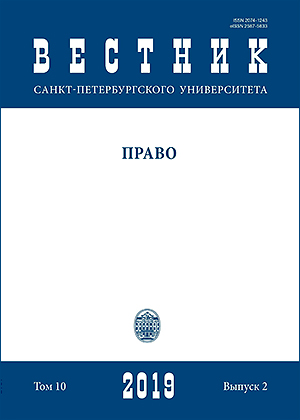Standard evidence of alcohol intoxication in road traffic cases. Criminal law and criminal procedure value. Realities and perspectives
DOI:
https://doi.org/10.21638/spbu14.2019.212Abstract
The article discusses the criminal and criminal procedural law enforcement issues in the context of crimes, described in article 264 the Russian Federation Criminal Code, committed under the influence of alcohol when offender left the scene of the road traffic accident. At the present time, there is a prohibition for this category of criminal cases to identify alcohol intoxication in any ways other than medical examination. Many researchers are trying to figure out whether it is criminologically justified to include rules on criminal liability for crimes committed under influence of alcohol to Russian Federation Criminal code and how it aligns with uniform standard of proof in criminal proceedings (uniform criminal-procedural regulations) and modern practical and theoretical approaches to the issue (including those, formed under influence of Supreme and Constitutional Courts rulings). In their opinion, above prohibition contradicts the principle of justice, and thus, to some extent, undermines criminological justification of criminal liability for crimes committed under influence of alcohol, leads to the violation of the uniform standard of proof and provokes suspects to leave the scene of road traffic accident. They see the solution of the issue in the abolition of the prohibition, but with retention of the criminal and procedural regulation of the situation in general (and offer the proposal to the lawmaker).
Keywords:
road traffic offences, alcohol intoxication, medical screening, leaving guilty scene, standard evidence
Downloads
References
Downloads
Published
How to Cite
Issue
Section
License
Articles of "Vestnik of Saint Petersburg University. Law" are open access distributed under the terms of the License Agreement with Saint Petersburg State University, which permits to the authors unrestricted distribution and self-archiving free of charge.






